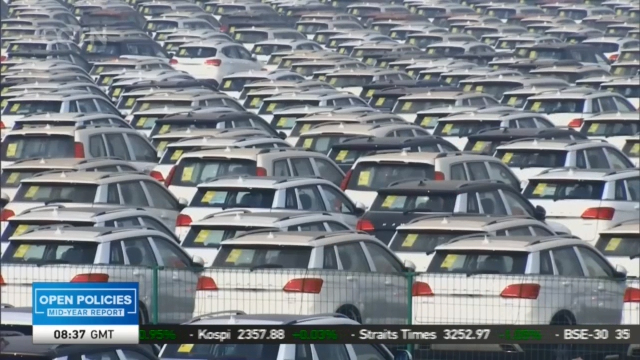
17:03, 25-Jun-2018
Open Policies Mid-Year Report: More open auto market to accelerate competition
03:35

There's never been a more interesting time for China's auto market. China will phase out joint-venture restrictions for foreign automakers in five years, and import tariffs are cut. How will it redefine competition in the world's largest auto market? Xia Cheng reports.
When full ownership is no longer a no-go for foreign auto brands in China, the question is whether to go solo or expand partnerships.
But that's not what the majority of foreign auto brands are doing in China. And here's the reason for similar decisions among traditional big auto brands.
XIA CHENG "The bottomline is not to lose market shares to new competition--for example, the new breed of automakers. Those newcomers are claiming their internet mindset helps capture the digital generation, like myself."
To win the tech race, Jaguar Land Rover is teaming up with 5 Chinese companies in fields like telecom, mapping, and autonomous driving. And Alibaba plays a role in Ford's plan to reverse declining sales in China. But not all automakers would move in the direction of getting more JVs on board.
DOUG BETTS SENIOR VP OF GLOBAL AUTOMOTIVE, J.D. POWER "I think honestly, foreign automakers didn't need to support of local partners for understanding the domestic market, understanding how to set up dealing net and also dealing with governments. They need to know if they can do it on their own before making decisions whether to go solo."
Changes would come in 2030, when most auto JV contracts in China expire.
For now, the bulk of the China revenues for global auto brands still come from locally made cars, while auto imports and exports are only a fraction of total sales. That's why auto executives do not see material impact from the China-US trade tensions.
The pressure on Chinese own auto brands is real--but if competition drives better quality of products, and diversity gets consumers' adrenaline running, a more mature China auto market would move to the inside track of mobility. XIA CHENG, CGTN, BEIJING.

SITEMAP
Copyright © 2018 CGTN. Beijing ICP prepared NO.16065310-3
Copyright © 2018 CGTN. Beijing ICP prepared NO.16065310-3